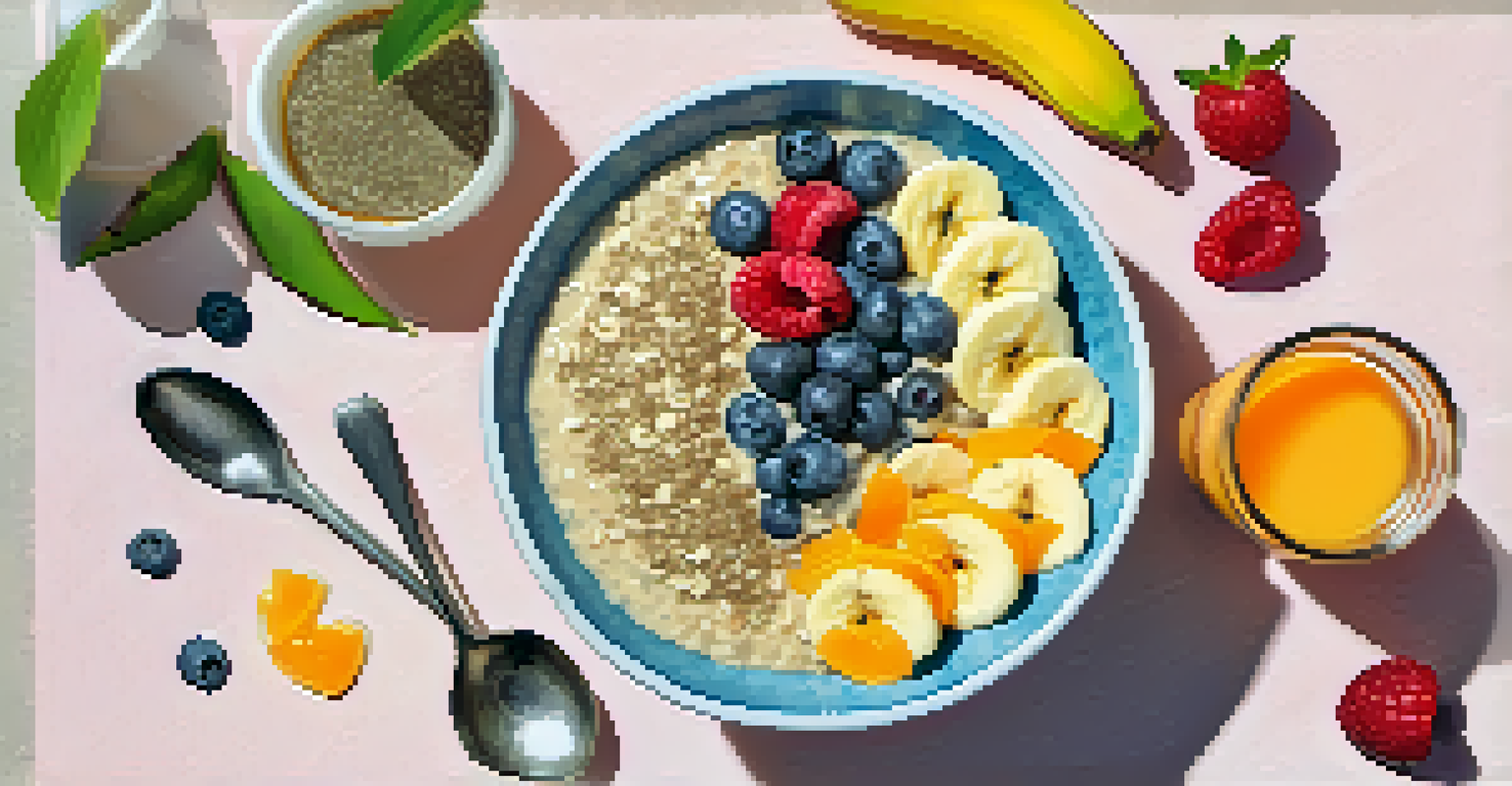Exploring the Role of Folate in Preconception Health

What is Folate and Why is it Important?
Folate, also known as vitamin B9, is a vital nutrient that plays a key role in DNA synthesis and cell division. This makes it particularly important for women who are planning to conceive. Adequate folate levels can help reduce the risk of neural tube defects in developing embryos, which is why it's often emphasized in preconception health.
Folate is fundamental for human development and health, especially when it comes to pregnancy.
Folate can be found in various foods such as leafy greens, citrus fruits, beans, and fortified cereals. However, many women do not get enough folate through diet alone, which is why health professionals often recommend supplements. Understanding folate's importance is the first step in ensuring a healthy environment for conception.
In short, folate is not just another vitamin; it’s a crucial player in the early stages of fetal development. Making it a priority in your preconception health plan can set a solid foundation for both mother and baby.
The Link Between Folate and Neural Tube Defects
Research has shown that adequate folate intake before and during early pregnancy significantly reduces the risk of neural tube defects (NTDs). These serious conditions affect the spine and brain of the developing fetus, and they often occur in the first few weeks of pregnancy, sometimes even before a woman knows she’s pregnant.

For instance, studies indicate that women who consume sufficient folate are less likely to give birth to babies with NTDs. This makes it crucial for women to start focusing on their folate levels even before trying to conceive, ideally at least three months prior. Think of it as laying down a protective barrier for the developing baby.
Folate is crucial for conception
Adequate folate levels significantly reduce the risk of neural tube defects in developing embryos, making it vital for women planning to conceive.
Therefore, by prioritizing folate in your diet and supplements, you are actively contributing to the prevention of these potentially life-altering conditions, ensuring a healthier start for your future child.
How Much Folate Do You Need?
The recommended daily intake of folate for women of childbearing age is 400 micrograms, which can increase to 600 micrograms during pregnancy. This requirement can often be met through a combination of dietary sources and supplements. It's essential to consult with a healthcare provider to determine the right amount based on individual health needs.
Adequate folate levels can prevent serious birth defects and support a woman's overall health.
Keep in mind that not all women absorb folate equally, especially those with certain genetic variations. This means that some may require higher amounts to achieve optimal levels. Monitoring your folate intake can be a game-changer in your preconception health journey.
In essence, understanding your folate needs is crucial. By ensuring you're getting enough, you’re not just following a recommendation; you’re actively supporting your future family.
Natural Sources of Folate to Include in Your Diet
Incorporating folate-rich foods into your diet can be both delicious and nutritious. Foods such as spinach, broccoli, lentils, and chickpeas are excellent sources. Snacking on citrus fruits or adding some beans to your meals can effortlessly boost your folate intake.
Additionally, many breakfast cereals and bread are fortified with folic acid, the synthetic form of folate. This can make it easier to meet daily requirements, especially for those with busy lifestyles. It’s all about finding simple ways to add these foods into your routine.
Natural sources of folate available
Incorporating folate-rich foods like leafy greens, beans, and fortified cereals can help meet daily folate requirements for better preconception health.
By focusing on a diet rich in folate, you’re not only supporting your own health but also creating an optimal environment for conception. It’s a win-win for you and your future baby!
The Role of Supplements in Preconception Health
While dietary sources are essential, supplements can play a key role in ensuring you meet your folate needs. Prenatal vitamins often contain the recommended amount of folic acid, making it easier to incorporate into your daily routine. These supplements can offer peace of mind that you’re supporting your body as you prepare for conception.
However, it's important to choose high-quality supplements and consult with a healthcare provider to ensure they meet your individual needs. They can help you navigate the various options available in the market and recommend the best choice for you.
Ultimately, supplements can be a beneficial addition to your preconception health plan. They fill nutritional gaps and help ensure that you’re doing everything possible for your future family.
Folate and Overall Health: More Than Just Preconception
Folate is not only crucial for pregnancy but also for overall health. It aids in the production of red blood cells, supports brain function, and may even help reduce the risk of certain diseases. By prioritizing folate in your diet, you're investing in your long-term health as well.
For instance, studies suggest that adequate folate levels may be associated with a lower risk of heart disease and certain types of cancer. It’s fascinating how one nutrient can have such a wide-ranging impact on health. This emphasizes the importance of viewing folate as a key player, not just in preconception health, but throughout life.
Consult healthcare providers for advice
Engaging with healthcare providers allows for personalized guidance on folate intake, ensuring a healthier preconception journey.
In essence, by focusing on folate, you’re not merely preparing for a baby; you’re also nurturing your own health. It’s a holistic approach that benefits both you and your future family.
Consulting with Healthcare Providers about Folate
Discussing folate and preconception health with your healthcare provider is crucial. They can provide personalized advice based on your health history, dietary habits, and any specific needs you may have. This tailored approach ensures that you’re on the right track as you prepare for conception.
Moreover, having these conversations can help you stay informed about the latest research and recommendations regarding folate. Healthcare providers can guide you through choosing the right dietary sources and supplements to meet your folate needs effectively.

Ultimately, fostering a collaborative relationship with your healthcare provider empowers you to take charge of your preconception health. It’s about creating a supportive environment for both you and your future baby.